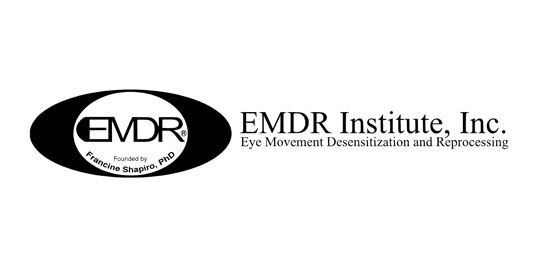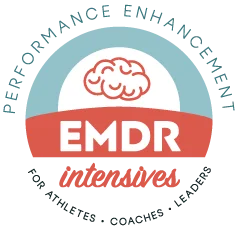
What is EMDR
and how will it help me?
Eye Movement Desensitization and Reprocessing (EMDR) is a form of psychotherapy that is evidenced based, highly researched and used all over the world. It is different from talk therapy and many traditional approaches to therapy that focus on your thoughts and understanding thoughts to try and change how you feel or give you coping skills to manage distressing feelings.
EMDR works with the body’s natural way of healing, which can be blocked at times, to rewire memory networks and desensitize disturbing memories, feelings, body sensations. When you no longer have feelings associated with negative core beliefs (basically the emotional charge is taken out of those memories), the pain is taken away and new adaptive thoughts come and different feelings. Memories are not erased but as the processing takes place the body releases stored trauma and the mind takes on new beliefs, rewiring your brain.
EMDR for PTSD and
Sports-related stress disorder
EMDR has long been recognized as a top treatment protocol for trauma and PTSD, but more research in the last decade has shown that it is also effective for treating anxiety, depression, low self-esteem and many other mental health concerns. Incredible change can take place utilizing Intensive EMDR treatment and the understanding that “All repetitive sports-performance problems (RSPPs), like the yips and severe slumps, have tauma bases that operate outside the athlete’s conscious awareness and control, and unless the underlying physical and emotional traumas are determined and directly addressed, the block might reduce but not fully release.”(This is Your Brain on Sports by Grand and Goldberg).
Often athletes, coaches, family, fans and support staff do not understand how to support an athlete and more frustration builds as positive self-talk coaching, mindfulness tools and other supports fall short of finding and treating the trauma. Better understanding Sports-related stress disorder helps athletes find and treat trauma and injury experienced both as an athlete and a human. Those who experience trauma carry it in their bodies and brains long after the trauma is over. EMDR helps reduce emotional pain allows the nervous system to calm and know “it is over now.” After the treatment and with more system integration in the body optimal performance is enhanced.
EMDR for
sports trauma and life trauma
Not sure where to start? Often there is a past experience or experiences that get stuck and create mental blocks and this can be treated with EMDR therapy. Many times, such blocking experiences are not seen as traumatic, and this leads to more frustration and confusion. These blocks can be identified in many ways, through the intake and evaluation process and using somatic focused EMDR.
Understanding interpersonal neurobiology often strengthens a client’s ability to have self-compassion for an injury, a setback, a stressor they cannot just think through. By understanding the nervous system and different state responses (fight or flight or freeze response- that happen below conscious awareness) people feel more empowered to heal. We can often see that the response of our body has guided us to a place that needs support. For example, many athletes struggle with a freeze response in their nervous system and then are not able to perform in their optimal state.

Often athletes, coaches, family, fans and support staff do not understand how to support an athlete and more frustration builds as positive self-talk coaching, mindfulness tools and other supports fall short of finding and treating the trauma. Those who experience trauma carry it in their bodies and brains long after the trauma is over. EMDR helps reduce emotional pain allows the nervous system to calm and know “it is over now.” After the treatment and with more system integration in the body optimal performance is enhanced.
Animation to explain
EMDR Therapy and Trauma to Adults
Learn more about
EMDR therapy



